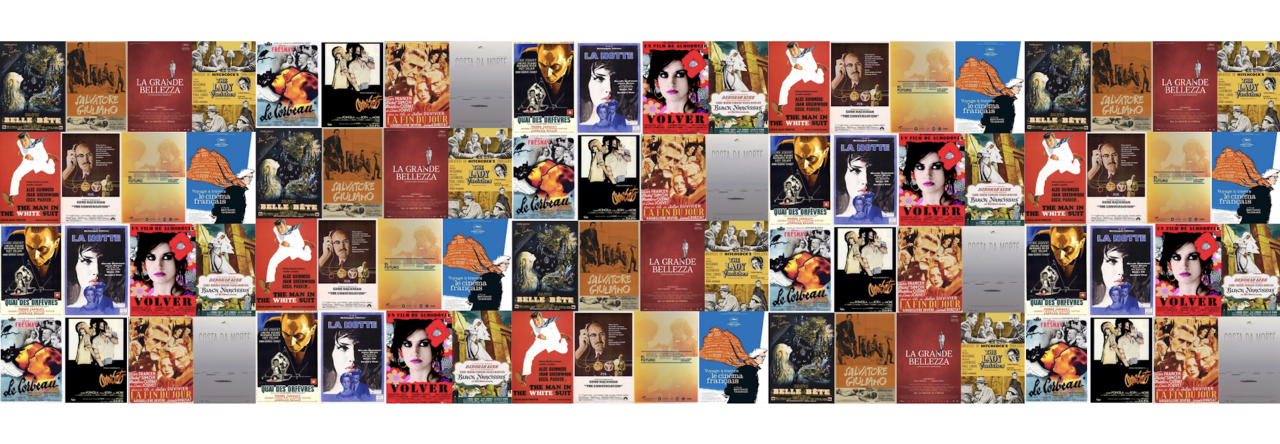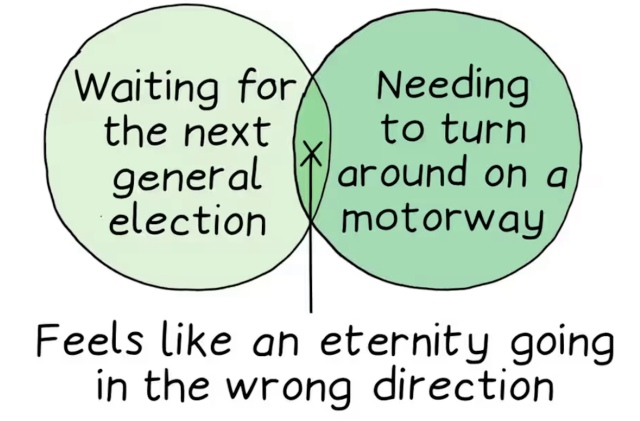
Category: Miscellaneous
Posts that don’t fit into any of the main categories.
25% off BFI Books
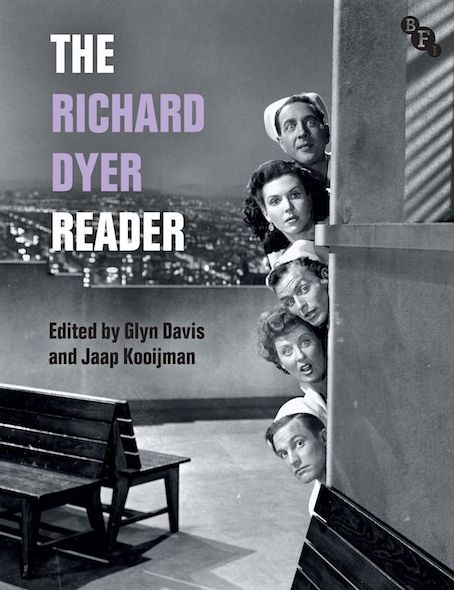
Bloomsbury, publisher of the BFI’s books (including the indispensable BFI Film Classics series), currently have a sale on their site – you can get 25% off using the code BTU23UK (most of the books already have a discount if purchased via the publisher’s website, but that code takes the full discount off at the check-out). Given the price of film books, I thought I’d pass that on.
I have purchased the above book, which is quite the tome, and I’m looking forward to dipping into old and new pieces by one of my favourite film writers. I’m now going to go back and see whether the code works on pre-orders, as I’d like Pamela Hutchinson’s forthcoming book on The Red Shoes. [Update: it doesn’t work on pre-orders, but the discount lasts until 8th October and the book is published on the 5th…so I will return!].
Carlos Saura (1932-2023)
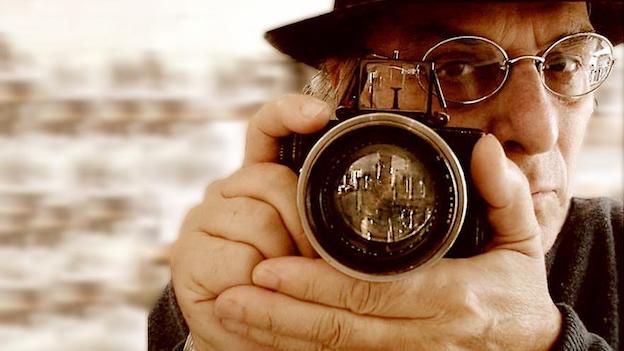
I’ve currently got Covid, so I’m not feeling up to writing anything at the moment, but at some point I will circle back to the Carlos Saura Challenge, to at least pull together some thoughts about the career of someone whose work I’ve returned to repeatedly during the lifetime of this blog (and my previous one).
Those unfamiliar with his passion for photography can find some information in this article, or in the short documentary about turning his work from the 1950s into a book [trailer below].
CARLOS SAURA – PHOTOGRAPHER, JOURNEY OF A BOOK (Official Trailer) from MAGNETFILM on Vimeo.
My 2022: Commencer un voyage à travers le cinéma français
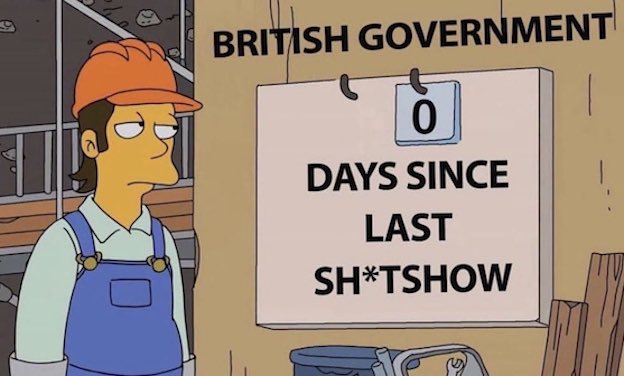
Viewing:
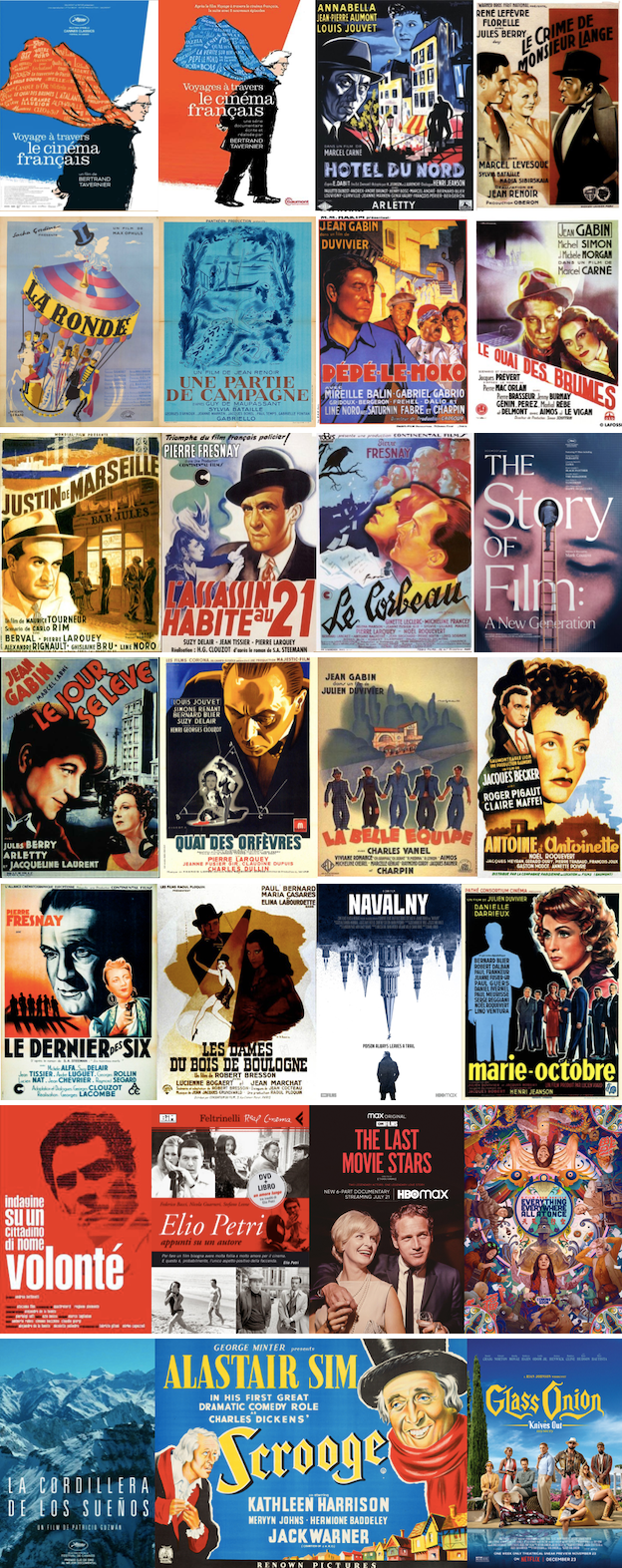
At the end of last year, after a dismal viewing record, I set myself the target of watching at least twenty-five films – and I made it (just)! All but the last seven were watched before Easter, so I still haven’t managed to get into a routine of watching films regularly. This is partly because I spend more time outside when the weather and light allows, but also because reading is still my dominant method of relaxation. I don’t see any need to “rectify” the latter, but I would like to try to sustain my engagement with films throughout the year.
As planned, I took Bertrand Tavernier’s documentary film and TV series on French cinema as an inspiration for kickstarting my viewing habits, and started by re-watching the two in order to refresh both my memory and my enthusiasm. Apart from La Ronde (Max Ophüls, 1950), they were all first time views. I had said that I would aim to watch at least half a dozen of the films he featured, but you’ll see from the image above that I trebled that tally and they make up the bulk of the films I’ve watched in the past twelve months. And I’ve only scratched the surface…I have at least as many again on my shelves waiting to be watched – I’m intending to continue with my own journey through French cinema in 2023.
Apart from French cinema, it has mainly been documentaries with a couple of diversions into recent features, namely Everything Everywhere All At Once (the Daniels, 2022) and Glass Onion (Rian Johnson, 2022), both of which I thoroughly enjoyed. But I think my top three for the year were: Le corbeau (Henri-Georges Clouzot, 1943), Quai de Orfévres (Henri-Georges Clouzot, 1947), and Antoine et Antoinette (Jacques Becker, 1947).
Some cinematic moments that lingered in 2022:
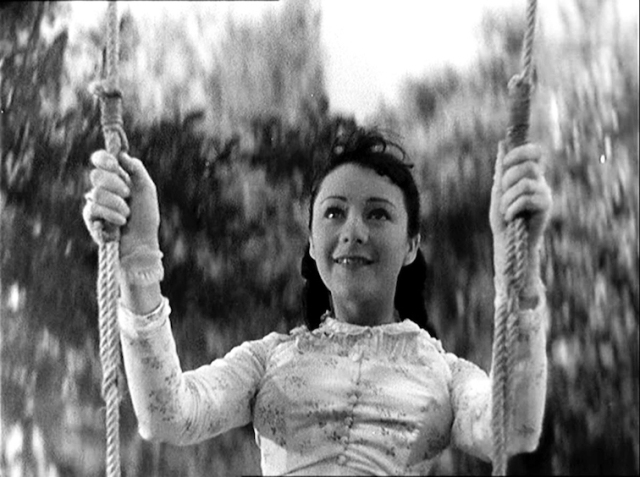
The brio of the camera movement in Justin de Marseille (Maurice Tourneur, 1935). [earlier in the year there was a trailer online for Pathé’s restoration, but I can’t currently find it].
Suzy Delair’s Mila Malou twitching her nose at fiancé Inspector Wenceslas Wens (Pierre Fresnay) when she gatecrashes his undercover operation in L’assassin habite au 21 (Henri-Georges Clouzot, 1943).
Jean Gabin being doomed in pretty much everything.
Starting to recognise the names of actors I hadn’t encountered before this year and then them popping up everywhere (e.g. Pierre Larquey and Noël Roquevert).
Anything Louis Jouvet was involved in.
The panic of the misplaced lottery ticket in Antoine et Antoinette.
Christo Grozev (of Bellingcat) and Alexei Navlany unexpectedly managing to get the latter’s attempted assassins talking on the phone in Navalny (Daniel Roher, 2022).
The “fanny pack” fight scene in Everything Everywhere All At Once.
Michelle Yeoh throughout Everything Everywhere All At Once.
Daniel Craig as Benoit Blanc (again).
2023: I’m going to continue my exploration of French cinema, fill in a few gaps from Sight and Sound‘s once-a-decade poll (namely Japanese cinema, of which I have seen very little), and aim for forty films – with something watched every month! I may post about what I’ve watched at intervals during the year, but I’m not making that a concrete aim.
Reading:

As usual, I only include books that I’ve finished and read properly (skim reads don’t count). I read fewer than in 2021 but still had a consistent pattern of reading throughout the year, which is what I’m trying to maintain. Although I finally got to le Carré’s The Honourable Schoolboy (which is excellent), I read less fiction than normal this year and unusually the balance is tilted towards non-fiction (around 57% according to my quick count just now, although it feels more than that). There were several non-fiction titles I should have stopped reading (but there were also others – not shown above – that I decided weren’t worth my time after a few chapters). I also read fewer translated works, so I’d like to put more effort into that this year. I’ve got quite a few novels lying around that I was looking forward to reading but then haven’t felt in quite the right head space for.
My top five:

- The Anatomy of a Moment – Javier Cercas. An extrapolation (combining factual research and imagination, in an iterative process) from a singular moment in Spain’s history. During the attempted coup d’etat in February 1981, only three members of Congress did not dive for cover when the golpistas opened fire: outgoing Prime Minister, Adolfo Suárez; his deputy, General Gutiérrez Mellado; and Santiago Carrillo, leader of the newly-legalised Communist party. Cercas considers what brought them to their behaviour in that moment and what that moment subsequently signified for them (and the country) in the aftermath. Una obra maestra.
- The Honourable Schoolboy – John le Carré. The heft of this book had put me off reading it for quite some time despite it being comparable in size to Tinker, Tailor.. but it is an enthralling read of derring-do, subterfuge, and betrayal. I understand why it hasn’t been adapted as a film, but in this day and age surely someone could make a TV series out of it. I’ll be picking up the next of the Smiley books, Smiley’s People, at some point in 2023.
- The High House – Jessie Greengrass. Speculative fiction set in the very near future (no dates are mentioned but the world is recognisably ours a few steps further down the line) as climate change causes cataclysmic events in parts of the world where perceived safety (that doesn’t happen here, to people like us) has allowed complacency to take root. It continued to reverberate around my head for most of the year.
- Shifty’s Boys – Chris Offutt. A sequel to The Killing Hills (which was in my top 10 last year). Offutt manages to convey a landscape (the rural setting is as much a player in what goes on as any of the characters) and an array of characters who seem lived-in and true.
- Lanny – Max Porter. A singular voice, an often disturbing read, and a piece of writing that has stayed with me. I’m not sure I’d classify it as ‘enjoyable’ (I had to steel myself to continue) but it’s certainly original. I think of it frequently when certain types of news story appear or when I notice that a landscape has changed when I’ve not been paying attention.
Honourable mentions (A-Z): All the Men I Never Married – Kim Moore, Beginners: The joy and transformative power of lifelong learning – Tom Vanderbilt, Death and the Penguin – Andrey Kurkov, The City – Stav Oleg [cinematic poetry], The Curious Gardener – Anna Pavord, The Stasi Poetry Circle – Phillip Oltermann, The Tiger in the Smoke – Margery Allingham.
2023: Keep reading, put more effort into seeking out translated voices, read more fiction, and stop buying so many books before reading the ones I’ve already got!
As ever, wishing you health and happiness in 2023!
My 2021: A dormant year

This is going to be one of those posts with little content related to films.
Recently I have often found the question of whether an event occurred in 2020 or 2021 strangely difficult to answer; the pandemic has caused a limbo-like sense of time not really passing, in conjunction with the repetitive series of events (in the UK anyway – the Govt being extremely resistant to learning from past mistakes) creating a strong feeling of déjà vu. This in turn has contributed to my sense of 2021 being a real trudge to get through. Although I both recognised and identified with aspects of Adam Grant’s much-circulated article about languishing (“Languishing is a sense of stagnation and emptiness. It feels as if you’re muddling through your days, looking at your life through a foggy windshield.”), I also liked Austin Kleon’s counter-response:
I’m not languishing, I’m dormant.
Like a plant. Or a volcano.
I am waiting to be activated.
That chimes with my favourite book from last year – Katherine May’s Wintering – and what it says about needing to accept that time is cyclical and passes in seasons; we can’t thrive or flourish all of the time. So I’m declaring this a dormant year for myself and am trying to look at it in terms of what I did achieve rather than what I didn’t.
Verónica Forqué (1955-2021)

Kika was my introduction to Almodóvar’s films. Forqué’s performance was memorably described in Sight & Sound by Paul Julian Smith as ‘a curious combination of Judy Holliday and Barbara Windsor’, and that encapsulates the sunniness-with-a-hint-of-mischief that she brought to most films.
Jean-Paul Belmondo (1933-2021)

If you can find a copy (it doesn’t appear to be available online), it’s well worth reading Julien Allen’s 2018 piece – ‘Belmondo vs. Delon’ – in Film Comment, or Ginette Vincendeau’s exploration of his star image in her classic book Stars and Stardom in French Cinema.
My 2020

Where to begin? It feels inappropriate to summarise 2020 solely with a list of what I’ve read and watched. Bigger things were afoot. Although there are some global commonalities to this year, I’m sure that we have all experienced them differently at an individual level.
Sir Sean Connery (1930-2020)
https://gfycat.com/helpfulbogusassassinbug
I tend to mark the deaths of actors / filmmakers on here only when they meant something to me personally. I don’t usually feel the need to elaborate on what that “something” was; posting an acknowledgement of their passing is a way of doffing a digital hat in their direction. I think that those of whom I have acknowledged in that way in the last few years are generally people who mean something to me from film viewing in adulthood…but Sean Connery feels like someone I’ve been watching my whole life.
I grew up in an era when the UK only had four TV channels. The Bond films were a standard feature in the TV listings on all public holidays (they often still are, although they seem to favour Craig and Brosnan in terms of what gets shown regularly now) and I have clear memories of watching them with my grandfather on bank holidays. I can’t say that I am a Bond “fan” but they are part of the cultural fabric of this country and therefore take on an almost mythical resonance. But although Sean Connery is in many ways the definitive Bond, he did not allow the role to define him, by which I mean that he didn’t allow it to limit him. When I think of Connery, I think of James Bond, but also The Untouchables, The Man Who Would Be King, The Name of the Rose, Robin and Marian, The Offence, and Time Bandits (and I’m aware that I haven’t seen the full breadth of his filmography). But in terms of the pure pleasure of cinema, the Indiana Jones series is right up there for me, and my favourite Connery role is that of Henry Jones Snr (not least because of how much he seems to be enjoying himself).
Olivia de Havilland (1916-2020)

Farran Smith Nehme’s Sight & Sound appreciation of de Havilland (on the occasion of the actress’s centenary in 2016).
Stay at home: Viewing and reading suggestions

Stay at home, please.
I have been working from home for just over a week. My place of work had announced its impending closure earlier today, but I expect to still be working from home (rather than getting through my TBR pile) for the foreseeable as many of the services that my team support are either already online or will be adapted for delivery in that format. Anyhow, as it now (finally) looks like a whole lot more of us in the UK will be indoors, I thought I’d start compiling a list of things to watch / read online for free (or minimal cost). I’m going to divide things into Viewing and Reading (I may add Listening if I have time to get into podcasts), and then add links in alphabetical order as and when I encounter them. Update: I’m going to tidy this up as and when services end or links no longer work.
[Last updated: 18/05/20]
Viewing:
10 Years with Hayao Miyazaki – VOD. Four-part documentary about the creator of Studio Ghibli’s best-loved films. Streaming on a Japanese platform for free, and appears to have subtitles in nine different languages.
The 100 Best Films Streaming on Netflix and Amazon Prime – compiled on the BFI site, and looks like it will be updated regularly.
40 Days to Learn Film – VOD. A film lecture from Mark Cousins (free to view).
Chili – VOD. Not a platform that I’ve heard a lot about but they have individual titles (including films recently in UK cinemas) available for digital rental, and although they don’t appear to have much in the way of World Cinema, they do have a fairly substantial documentary section.
Cinémathèque française – Streaming. The Cinémathèque française has launched a new online platform, Henri (named after Henri Langlois), on which they will add a different film every night at 8:30pm – and it will be accessible worldwide. They will be choosing films that they’ve restored in the past twenty years, including some that are otherwise unavailable. They’re starting tonight (9th April) with Jean Epstein’s The Fall of the House of Usher.
Doc Alliance – VOD. Subscribe for 6€/month. A vast catalogue of documentaries (including shorts) from around the world (there are often multiple versions of the same film, each with subtitles in a different language).
Festival Scope – VOD. Hosts the online presence for various film festivals – films can either be rented individually, in batches with a discount, or sometimes for free. It will be worth periodically checking back to see which festivals are making films available.
Korean Film Archive YouTube Channel – VOD. Korean films put online for free by the national film archive (English subtitles are available – at least on the selection that I’ve browsed through).
Márgenes – VOD. This is the platform that hosts the Festival Márgenes every year. There are geographical restrictions on some titles, but a lot can be rented for a couple of euros. The bulk of their catalogue is effectively independent Spanish-language cinema, including quite a few of the ‘Otro cine español’ titles that I’ve written about in the past. Explore!
Panda cam (other animals/birds can be chosen from the main navigation bar) – filmed in nature reserves, national parks, and zoos. A whole lot more relaxing than the news.
Reading:
The Big Issue – The homeless population (ever expanding in recent years thanks to austerity and other government policies) are especially vulnerable to the pandemic, and The Big Issue‘s vendors will not be encountering customers during lockdown. Most of the magazine’s income comes from those street sales; they are asking people to show their support by either buying a digital copy, taking out a three month subscription, or making a one-off donation, to help them cover costs (and continue to support their vendors) during the lockdown and its aftermath.
Borderless Book Club – This developed out of the Translated Fiction Online Book Club [I’ve removed the details of that to avoid confusion], but they’ve now expanded their schedule and gone for a snappier title. The original six UK independent presses who specialise in translated fiction – Peirene Press, Charco Press (who have some excellent Latin American titles in their catalogue), Comma Press, Istros Books, Nordic Books, and Tilted Axis Press – have been joined by Bitter Lemon Press and Fitzcarraldo Editions in their online book club, which involves live discussion and interviews with authors and translators (all via Zoom). Even if you don’t want to participate in the book club (I haven’t had time and tbh video call discussions don’t appeal to me, not least because I’m using them for work), these indie presses merit bookworm support and their back catalogues will reward exploration.
Diverted Traffic – a new newsletter from the London Review of Books that each day releases an archive article from behind their paywall.
Nancy Campbell to Alicia Kopf | Alicia Kopf replying to Nancy Campbell
Pedro Almodóvar’s Lockdown Diary – Part 1 | Part 2 | Part 3 |
The Pudding – a ‘digital publication that explains ideas debated in culture through visual essays’. Among their greatest hits: Rappers, sorted by the size of their vocabulary; Women’s pockets are inferior; Colorism in high fashion.
Virtual Book Channel – from LitHub. Interviews, book launches, and more.
Weekly Film Bulletin – sign up for a new weekly email of feature writing and VOD recommendations from Sight & Sound.
My 2019

Books –
My Twitter bio used to say ‘Lives vicariously through books and films’, and I think that I have pursued escapism through books this year (films, not so much). I finally hit my ’52 books in a year’ target! I am currently reading book no.59, but I’m unlikely to finish it before the year is over. I started a new job back in May, and was doing a fair amount of background reading in the first half of the year (I applied in January and was interviewed in March, so the application process was quite elongated) – I usually only include books read ‘for fun’ or my own curiosity, but there is work-related reading in my tally this year (nothing ‘how to…’ but more thematic or topically relevant non-fiction), mainly because it was done in my own time and to answer my own questions, so it ‘counts’.
New job aside, 2019 can be characterised as ‘ugh’. We’re ending on a low. I wasn’t as shocked by the election result as I was in 2015, but I was still surprised and dismayed by the scale of the defeat. The Windrush scandal alone should have seen them turfed out on their arses…and that is the tip of the iceberg of what they have done in the last nine years. Now with a sizeable majority, they have a free rein. I don’t remember exactly what was going on at the time, but my reading a combination of ten John Sandford and Robert Crais books back-to-back over the course of two weeks or so in August is illustrative of a desire to block out the news (my literary crime sprees occur when I’m low or need distraction).
I usually list my standouts for the year in alphabetical order, but this year my favourite was far out ahead of everything else, so I’m going to list them in order of preference. My overall top 5 were:
- West – Carys Davies
- Ghost Wall – Sarah Moss
- Convenience Store Woman – Sayaka Murata
- The Cost of Living – Deborah Levy
- Sarah Jane – James Sallis
Honourable mentions: An Honourable Man – Paul Vidich, Four Words for Friend – Marek Kohn, and The Equestrienne – Uršula Kovalyk. I’m aware that these selections are weighted towards the second half of the year, but I believe that has more to do with the first half of the year’s reading including the aforementioned background reading (and a focus on work), rather than them simply being fresher in my mind. My crime spree hit a reset button and I got on to a good run of fiction in the last few months of the year. I wouldn’t ordinarily read so many books by the same authors in one year, never mind back-to-back (even the best writers get a bit same-y or the stories run into each other, especially with recurring characters), but I was attempting to catch up on certain long running series by Sandford and Crais.
2020: I still have another series of Sandford’s to catch up with, and also Philip Kerr’s Bernie Gunther books, of which I’ve got at least four to read. I’ll keep on with the short stories and novellas – and I didn’t read as much in translation this year, so I’ll put more effort into that again. In the first half of the year I managed to read non-fiction during my morning commute and I want to re-start that (it tailed off after the summer and I either got sucked into reading the news or stared out the window instead). I still haven’t got back into longer books (I’m talking 400+ pages), but maybe this will be the year when I finally read John le Carré’s The Honourable Schoolboy.
Other reading –
Online articles that I’ve found interesting or thought provoking in one way or another (usual disclaimer: I don’t necessarily agree with them, but think that they are worth reading). I’m going to list them in chronological order because a number of them relate to situations that developed over the course of the year (UK politics/social issues, mainly). Where I don’t know the date, I’ve positioned them where they occur in my bookmarks (on the basis that I must have read them at that point in time). You will also notice that they are not evenly distributed throughout the year – the large gaps are where I was deliberately spending less time online, and the clusters in certain months are where I felt the need to pay attention (noticeably in relation to the General Election). There’s not much film writing included, which is indicative of my general levels of interest but also I’ve found that without Twitter I encounter less of that subject matter. Articles from The Guardian are mainly from their Long Reads series – I subscribe to the RSS feed of certain sections of the paper and those of specific journalists (part of a strategy to avoid the clickbaity provocations of the main page). The London Review of Books (LRB) has a new website and has removed the paywall until mid-January, so I’d advise you to fill your boots over there.
- Consolation Prizes – Alex Pareene, The Baffler, January
- “The goal is to automate us”: Welcome to the age of surveillance capitalism – John Naughton, The Guardian, 20th January
- Finding My Father’s Auschwitz File – Allen Hershkowitz, New York Review of Books, 25th January
- Three Writing Rules to Disregard – Benjamin Dreyer, The Paris Review, 1st February
- Bolsonaro’s Brazil – Perry Anderson, LRB, 7th February
- Leave, and Leave Again – William Davies, LRB, 7th February
- The New Scabs: Stars Who Cross the Picket Line – Soraya Roberts, LongReads, 8th February
- Valeria Luiselli: “There are always fingerprints of archives in my books” – Mary Wang, Guernica, 12th February
- An inevitable division: the politics and consequences of the Labour split – Jeremy Gilbert, openDemocracy, 20th February
- How the truth of ‘The Troubles’ is still suppressed – Alex Gibney, NYRB, 22nd February
- Spain’s Watergate: Inside the corruption scandal that changed a nation – Sam Edwards, The Guardian, 1st March
- Debunking the myth that anti-Zionism is antisemitic – Peter Beinart, The Guardian, 7th March
- Among the Gilets Jaunes – Jeremy Harding, LRB, 21st March
- Corita Kent’s Rules, Reading Design
- Colorism in High Fashion – Malaika Handa, The Pudding, April
- Roberto Gavaldón: Mexico’s Auteur of Noir – Will Noah, NYRB, 27th April
- A Study of Italian Fascism: Rosi’s ‘Christ Stopped at Eboli’ – David Schurman Wallace, NYRB, 2nd May
- The first missing numbers: the savings from Universal Credit – Anna Powell-Smith, Missing Numbers, 9th May
- If you didn’t desert Labour over the Iraq war, why give up on it over Brexit? – Gary Younge, The Guardian, 17th May
- Will Spain be the Saviour of Social Democracy in Europe? – Omar G. Encarnación, NYRB, 28th May
- The new left economics: how a network of thinkers is transforming capitalism – Andy Beckett, The Guardian, 25 June
- Journeys through Black Europe: An interview with Johny Pitts – Owen Hatherly, Tribune, 7th July
- The Driest Eye [on Natalia Ginzburg] – Deborah Eisenberg, NYRB, 18th July
- Deep Focus: the Golden Age of Mexican Cinema – Chloe Roddick, Sight & Sound, July
- Present Tense: Back-ting – Sheila O’Malley, Film Comment, 25th July
- The Central Park Squirrel Census – Jamie Allen, The Paris Review, 31st July
- Agnès Varda – Michael Wood, LRB, 1st August
- Symposium – Martin Scorsese: He Is Cinema, Reverse Shot, Sept – Oct
- I Said Marvel Movies Aren’t Cinema. Let Me Explain – Martin Scorsese, The New York Times, 4th November
- On London Bridge – James Butler, LRB blog, 2nd December
- Translating a Person – Alejandro Zambra, Believer, 2nd December
- ‘Hijacked by Marxists’ – James Butler, LRB blog, 10th December
- Labour won’t win again until it works out why it lost – Gary Younge, The Guardian, 13th December
- This Labour meltdown has been building for decades – Aditya Chakrabortty, The Guardian, 14th December
- ‘It’s in the Air, It’s in Your Bones’: Notes on an Aftermath – Salvage Editorial Collective, Salvage, 18th December
- Labour must resist those who say nationalism is the way to gain power – Daniel Trilling, The Guardian, 23rd December
Films –

I was in half a mind to just have an image from the film(s) I want to talk about, but having displayed everything that I’ve read, I thought that I may as well display the entirety of what I’ve watched as well. It’s an odd assortment. Four more titles than last year but still very few in terms of my older habits. All but two of them are documentaries or documentary series – I have had zero interest in watching fiction recently.
My favourite thing that I’ve watched this year is the combination of Bertrand Tavernier’s 3 hour documentary on French cinema and his subsequent 6 part TV series that continued on the same subject (if you look closer, you’ll see that the second poster puts the title into the plural). The TV series (the French DVD set has optional English subtitles) covers the same time frame (he again stops at the point when he began making films himself) but different films and filmmakers to the documentary film – even with what must be more than 8 hours, it feels like he barely scratches the surface of his enthusiasms. As with Scorsese’s documentaries on Italian and American cinemas, you’re getting a personal view of the films rather than a straightforward history, but that’s what I find so engaging – not just that you’re getting a knowledgeable person’s recommendations, but that you’re getting introductions to titles that don’t necessarily feature in the sanctified canon. [If someone could make an equivalent for Spanish cinema, that’d be grand].
My knowledge of French cinema is fairly basic (certainly in comparison to Spanish cinema) or feels un-informed, essentially confined to what was covered in either an Introduction to Film Studies module, or a semester-long undergraduate module which concentrated on the 1980s (Besson, Beineix, Carax – and the cinéma du look) onwards. That said, French films had decent distribution during my teenage years and into my twenties, so I did watch a lot of French films – and developed a love of Claude Chabrol and Lino Ventura – both at the cinema and via Lovefilm, and initially my PhD was going to include French cinema, so I had subscriptions to French film magazines and was paying attention to what was being made at that point. But in terms of what French cinema means to French people, my understanding was limited (although the film magazines were interesting in that regard in terms of what was popular and who got coverage – that’s why I still have subscriptions to Spanish film mags; if I had to rely on information filtering through to UK/US publications, I wouldn’t know anything or anyone).
After watching Tavernier’s films, I have discovered that where Pathé and Gaumont have in recent years restored older films for French home viewing, a fair few have optional English subtitles – I now have a small pile of imported films by Duvivier, Clouzot, Lautner, Grangier, Grémillon, Becker, and others. In 2020 I’ll be looking to rekindle my interest in cinema via these treasures. I have given up on contemporary cinema at the moment – at least in terms of going to the cinema – but alongside the French imports (of old films) I am hoping to start watching some of the (recent) Spanish films that I’ve imported in the last couple of years (although I think I’ve said that in each of the equivalent posts in the last two years). So 2020 may be a year of French and Spanish cinema for me…and more documentaries, no doubt. Hasta pronto.
